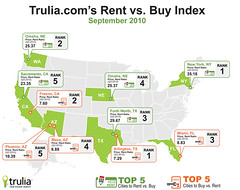If you are completely new to the world of purchasing real estate, then you are probably thinking that some tips on how to do so without losing money will help you immensely, so that you can get the property you have always wanted. The tips below can help you start purchasing real estate properly.
Hire a professional inspector to do an inspection on the home you are looking to buy. Get a professional to do this. If you have a friend inspect the house for you, you are taking the risk of missing something important and not being able to hold the party accountable.
Do a quantitative analysis of your area’s housing market. You need to search through websites that provide a list foreclosures locally, median selling prices and the length of time that it takes for the average home to sell in your area. Other things you may want to investigate are local unemployment rates, income levels and schools. A good location with good products can put you on top even if the trends are down.
If you are a real estate agent, you should seriously consider sending out cards during the holidays and on anniversaries you share with your clients. Sending them a message is a great reminder for how much you helped them with their home purchase experience. Consider reminding them that you are always available to help their friends and relatives purchase their next home, as well.
If you have a car and you are looking to buy a home, make sure there is significant parking in the area. This is especially important if a home has no driveway or garage. In the absence of an ample supply of parking in the neighborhood, you may find yourself walking long distances to reach your front door.
When you are interviewing agents to represent you, be certain to ask them if they reside in the area you are considering — and for how long. Agents who are relatively new to your area won’t have the same storehouse of knowledge about the local neighborhoods, roads, or community restrictions that a long-time resident would possess. An agent with 10 or more years of experience in your area is ideal.
Banks aren’t required to do home inspections, but it should still be done. Having the house professionally inspected before your purchase is important because it will tell you the exact condition of the house. There are lots of home problems that may be hidden to the uninitiated, but a professional home inspector will spot them right away.
Make sure to ask your Realtor to supply you with a checklist. A good Realtor will be able to give you a list that covers the different steps of a transaction, from finding a home to getting approved for your mortgage. You can use the various checklists to make sure you’re ready for every contingent as it comes up.
Being organized is helpful when purchasing real estate. Dedicate a notebook just to the information you gather online, from the newspaper, from friends and from your agent. When you keep all this data in one convenient notebook, it makes it easy to reference whenever you need it.
If you find a fixer-upper that needs improvements you are capable of making, ensure the price reflects the condition of the home. Purchasing one of these lets you save money, and you can put work into the home at your pace and on your budget. You will have the ability to renovate the house to your exact tastes while you accumulate equity along the way. Take the potential of a property in consideration before letting the drawback discourage you. The home of your dreams might be waiting for you behind an outwardly rough exterior.
Closing Costs
Always have extra funds for unexpected costs when buying a property. The closing costs are usually calculated by adding the prorated taxes, bank points and down payment. Most of the time, closing costs also include improvement bonds, school taxes and other considerations.
When you first begin looking for property, it can seem like the process is too complicated to understand, but once you get some information and add your own common sense, it’s not so bad. The tips you have read above have most assuredly made you better equipped to make investment decisions.

